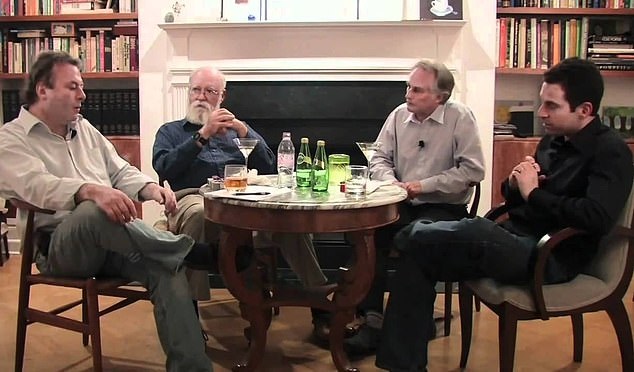
ESCAPE FROM REASON—FRANCIS SCHAEFFER
We’re two decades into the new millennium but something strange is in the air. We can’t name it, but somehow, we can sense it. In the West, new trinkets and ideas surround us; still something about our lives feels frayed, hollow, fractured.
Francis Schaeffer’s Escape From Reason gives words to that fracture. Published 50 years ago, it frames the dilemma of modern humanity with such prophetic insight that it could have been written yesterday.
C.S. Lewis once said, “It is a good rule after reading a new book, never to allow yourself another new one till you have read an old one in between.” If it’s been a while since you’ve read an old book, make Escape From Reason your next.
Francis Schaeffer (1912-1984) was a pastor, theologian, philosopher and evangelist, and also the founder of L’Abri, a discipleship community based in Switzerland.
Schaeffer had an impressive array of passions—from art, music and architecture, to theology, philosophy and modern culture. Such a broad knowledge base enabled him to connect dots that no one else did; moreover, it gave him piercing insight into the modern mind.
Most of all, however, Schaeffer was an evangelist. He preached, discipled, and wrote over twenty books with a single aim: to see modern people transformed by the gospel.
In Escape From Reason, Schaeffer contends that to make sense of life, we humans are looking for a unity between two “levels” of knowledge—picture two stories of a house.
Downstairs is the diverse array of our earthly experiences—in philosophy, these are known as particulars or nature. Upstairs in this house is some kind of transcendent truth that gives all the particulars meaning—in philosophy these are called universals or grace.
It is only when we can perceive a unity between the downstairs and the upstairs that we can be at peace within ourselves and make sense of the world we live in.
In Chapter 1, Schaeffer suggests that early Christians emphasised grace to the neglect of nature. But then beginning with Thomas Aquinas (1225-1274), an over-correction towards nature began to take place.
In the world of art, this was revolutionary as paintings, for example, became far more lifelike. But in theology it spelt trouble. As the Renaissance took off, people began wondering if grace—in particular, the insights of Scripture—were even needed anymore.
Schaeffer highlights in Chapter 2 why the Bible’s revelation is needed. Scripture gives us a perspective that our view from downstairs cannot—namely that we humans are both broken and beautiful. Broken, meaning we desperately need grace. But also, beautiful: made in God’s image, therefore far more than simply “cogs in the machine” of nature.
Chapter 3 traces how tragically, this “cogs in the machine” view of humanity took over the modern world. It even led philosophers, starting with Hegel (1770-1832), to abandon all hope of a downstairs-upstairs unity. And since philosophy eventually flows down to the arts and popular culture, an all-pervading despair began to fill the western hemisphere.
Why did philosophers abandon this hope? In Chapter 4 Schaeffer tells us. Beginning only with downstairs rationalistic ideas, everything—including humanity itself—is reduced to mere mathematics and machinery, with no ultimate meaning or purpose.
In other words, we moderns now find it impossible to believe an upstairs even exists anymore. So we’re forced to take a “leap of faith” and invent our own irrational upstairs meaning out of thin air.
So now, downstairs and upstairs have zero relationship to each other. Downstairs logic leads to meaninglessness. And any upstairs meaning we concoct is purely illogical. All unity has been lost. This is Schaeffer’s famous “dichotomy”. And it is—he contends—the great cause of the West’s despair, right up to the present day.
In Chapters 5 and 6, Schaeffer draws on his knowledge of the world of art, literature, cinema and popular culture to illustrate this dichotomy, centering on the seismic shifts that took place in the 1960s. In doing so, he proves convincingly that this dichotomy really is the reason we moderns find it so hard to live with ourselves.
Finally, in Chapter 7 he summarises his entire argument and insists that he has not written Escape From Reason in order to entertain. Rather, he did so to expose the utter despair of modern people, and thus the need for Christians to respond to it with gospel clarity.
At 120 pages, Escape From Reason is one of his Schaeffer’s shorter works, so you won’t need long to read it. You will, however, need your brain—and a willingness to learn some of his unique vocabulary.
But if you’re serious about turning the tide on the West’s cultural decline, and you long to see Australia’s Christian foundations rebuilt, you absolutely need to read this book.
2 Comments
Leave A Comment Cancel reply
Recent Articles:
26 April 2024
4.2 MINS
Stanisława Leszczyńska's heroic legacy at Auschwitz is a testament to faith, courage and humanity in the face of unimaginable horrors.
26 April 2024
6.5 MINS
It may seem like Christianity is nearly doomed in America and the West. It has had a very good run, but things seem to be heading south. So is there hope for the West? Well, as long as God is in the equation – and He always is – then there is still hope.
25 April 2024
8.2 MINS
ANZAC Day is a solemn remembrance of the fallen. But due to its rich spiritual heritage, it is so much more. The ANZAC spirit is truly sacred.
25 April 2024
5.8 MINS
Atheists, like everyone else, will sooner or later die. Either that, or they will renounce their misotheism and turn to God, if not to Christ. There are so many atheists and non-believers who have abandoned their hatred of God and embraced Him and His great love for them.
24 April 2024
5.2 MINS
From violent events in Sydney to ongoing conflicts worldwide, it's natural to feel overwhelmed and unsure about what's happening now and what's to come. Your children pick up on your feelings, so caring for yourself will help them as well.
24 April 2024
7.7 MINS
Many believers struggle to fully experience and embrace the love that Father God has for us. So this piece will look at some further aspects of this.
23 April 2024
4.7 MINS
How do we know how to disagree well? What issues are deal-breakers? Which are relatively unimportant? And how do we tell the difference? Thankfully, the Christian theological toolbox has some handy resources to help address this dilemma.







































This is a very helpful overview of the contents of this book. I used this article as I read along with Schaeffer. Perhaps the last paragraph of Schaeffer’s work best sums up what he wanted to do with this book: “So what is said in this book is not merely a matter of intellectual debate. It is not of interest only to academics. It is utterly crucial for those of us who are serious about communicating the Christian gospel in the twentieth century.” And, as mentioned in the article, what Schaeffer wrote last century is just as applicable in this one.
[…] now in the West, the very foundations of freedom are being called into question. So now more than ever, there’s an urgent need for us to recapture […]